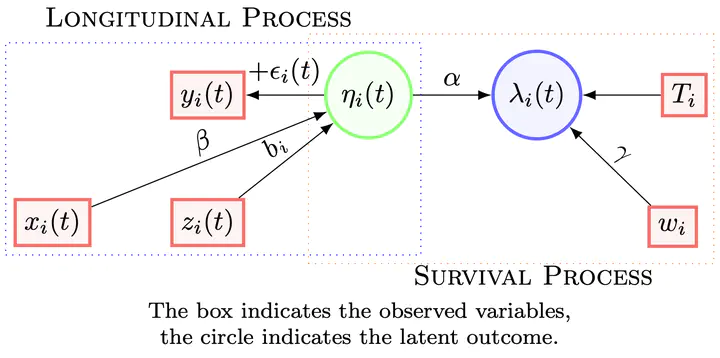Hypothesis testing in joint models for longitudinal and time-to-event outcomes

Abstract
Many clinical studies collect longitudinal biomarkers known to be highly associated with a time-to- event outcome. Motivated by the problem of testing genetic association in this setting, we investigate joint models for the association of genetic variants with longitudinal measurements and time to event. We develop and validate a closed-form sample size formula for an overall genotype association in this setting, and conduct simulations to compare joint model approaches to test for direct/indirect/overall genotype associations with time to event. To improve robustness to model misspecification due to non- linearity of the longitudinal traits, we make use of spline functions to capture nonlinear subject-specific evolutions in the longitudinal process. In the simulation study, we also assess the sensitivity of inference to misspecification, and evaluate the validity and power of hypothesis tests in joint modelling. Different joint modelling approaches are implemented in an application to genetic data from the Diabetes Control and Complications Trial.